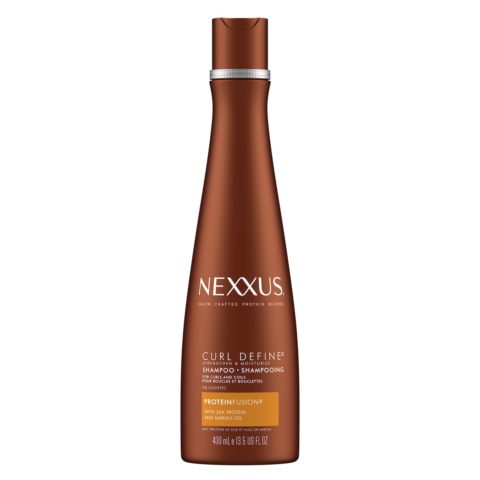This is Texture Talk, a weekly column that deep dives into the dynamic world of curly hair,
Date December 17, 2020
We’ve said it once, twice and we’ll keep on reiterating it: Styling curls and achieving ample definition truly begins once you step into the shower – not when you get out. This is why being picky about the selecting the right shampoo and conditioner that work in tandem to leave you with a head full of healthy, bouncy strands is one of the most important things you can do for your hair routine, no matter your curl type.
For years, it has been well documented and understood that curly and straight hair are essentially polar opposites in terms of the shape of the hair follicle (the biggest determinant on whether hair strands grow round or straight from the scalp). It’s these structural differences that cause curls and coils to naturally be much drier, coarser and not as resistant — aka a recipe for being more prone to breakage — compared to straight strands. And the tighter the curl pattern, the more fragile the hair becomes.
Diving deeper into the science, all hair, whether curly or straight, is made up of a tough protein called keratin and keratin is made of up amino acids. Still with us? Good. Keep on reading.

Hair scientists have long thought that all hair types were made up of the same type of keratin protein, and that its distribution via the hair follicle down to the hair shaft is what also determined how each strand is structured: In a straight-haired follicle, keratin is evenly distributed down the centre and in curls and coils, keratin accumulates more on one side. But haircare brand Nexxus has some pretty game-changing news.
Through the power of proteomic science (the study of proteins), Nexxus discovered that it’s not just the structure of the hair follicles that’s different in curly vs straight hair, but the actual proteins inside differ greatly as well.
“Curly hair and straight hair have different keratin proteins.” says Dr. Fraser Bell, science insights leader for Nexxus, adding that those specific curl proteins are richer in key amino acid building blocks, glycine and serine, which appear at a frequency of two to six times greater than in straight strands.
Plain and simple: Curls and coils require more protein. With this knowledge, Nexxus spent two years formulating, testing, and rejigging its first-ever range exclusively for curls and coils – from curl type 3A up to 4C – called Curl Define.

Landing on shelves in February, Curl Define is powered by silk protein to keep curly hair on its best behaviour. “Silk protein is rich in the same building blocks as curls and coils,” says Bell. Another star ingredient is marula oil, which has been proven to deeply penetrate curly hair and boost curl shape and shine. As for specific products, you’ll find a non-stripping, sulfate-free shampoo, a moisture-locking rinse-out conditioner, and a leave-in conditioner ideal for in-shower detangling that controls frizz and leaves curls soft, defined and ready for whatever styling products you reach for next. Bonus: Thanks to its lightweight texture, you don’t have to worry about any pesky build up, either.
“What I love about this line is that I can add whatever product I want into my an existing regimen to match a client’s needs. It’s not designed that you have to use it as a full range,” says celebrity hairstylist and Nexxus consulting stylist Lacey Redway. And if you’re a fan of co-washing your curls in between a good shampooing like Redway, the rinse-out conditioner is prime for that, she says.

“I’ll also sometimes leave it in [for a few minutes] as a deep conditioner with a shower cap or Saran wrap and let the natural heat from the scalp heat the product up for better detangling.” Donning a braid or twist-related protective style? The hair pro has a Curl Define multitasking tip for that, too. “Put a little bit of the leave-in conditioner into a spray bottle, add some water and mix it up. The fine mist will penetrate [the hairstyle] and moisturize your hair inside.”

